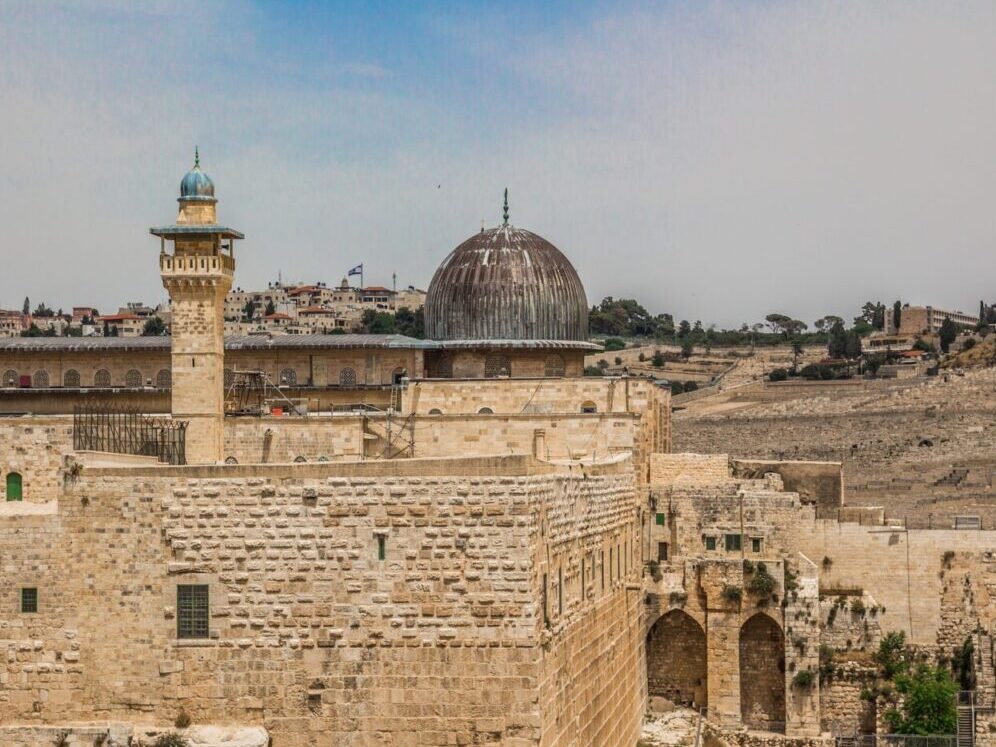The Night of Power in the Holy Land

Jerusalem, known in Arabic as Al-Quds, is one of the oldest cities in the world. For Palestinians, the city holds a strong spiritual and cultural significance; it is mentioned in literature, poetry and art with longing and love. Palestinian refugee camps have signs at their entrances indicating how far they are from the city.
Inside the Muslim quarter of Jerusalem’s Old City lies al-Haram al-Sharif, or the Noble Sanctuary. This 35-acre compound comprises Islam’s third holiest site after Mecca and Medina in Saudi Arabia; Al-Aqsa Mosque. The mosque is known for being the place where the Prophet Mohammad (PBUH) was transported to during the Israa and Miraaj, holding great significance for Muslims all across the world.
Palestinians have been restricted access to the city for many years; the separation wall prevents Palestinians in the West Bank from entering Jerusalem freely, while only Palestinians over a certain age are allowed to enter the compound to pray. Palestinian refugees across the Middle East are unable to return and cannot visit their holy sites in Palestine. There are millions locked outside wishing to see Jerusalem.
Restrictions on accessing sites of worship has a real impact on Palestinians’ need to seek sanctuary, hope and normality in the face of their trauma, especially during the Holy Month. As we seek Laylatul Qadr during these final nights of Ramadan, we hope that you will pray for our brothers and sisters in the Holy Land and get involved in protecting and advocating for their rights however you can, inshAllah. May Allah SWT accept your worship and prayers and allow you to find Laylatul Qadr!
Calculate your Zakat
Confused about how to calculate your Zakat? Try our simple-to-use calculator

![A Shadow R1 spy aircraft operated by the UK's Royal Air Force, accused of supporting the genocide in Gaza [Jerry Gunner / Wikimedia]](http://www.interpal.org/wp-content/uploads/2025/04/1768px-Shadow_R1_5AC_Sqdn_RAF_Waddington_this_morning-e1745166357309-500x333.jpg)

![Fighters from Israel's pre-state militia occupying the village of Deir Yassin, April 1948 [IDF archive / Wikimedia]](http://www.interpal.org/wp-content/uploads/2025/04/Jewish_militias_in_the_village_of_Deir_Yassin_April_1948_cropped_and_edited-e1745166391491-500x333.jpg)

